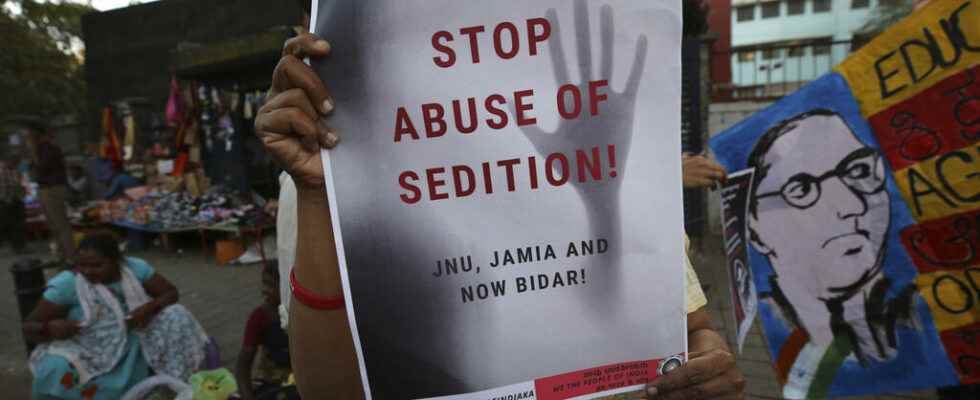In India, the Supreme Court suspended, on Wednesday May 11, all prosecutions for an act known as ” sedition ”, a colonial-era law defined by section 124 A of the Indian Penal Code, often used arbitrarily to silence political opponents. Pending the re-examination of this law, those accused under this heading will be able to obtain parole, according to the country’s highest court.
With our correspondent in New Delhi, Antoine Guinard
It is not relevant to continue to use the law against sedition, until it is reviewed. This was declared on Wednesday, May 11 by the Indian Supreme Court, which asked the government not to receive complaints in this respect.
The Supreme Court had suggested to the Indian government on Tuesday that Section 124A be ” held in abeyance ” Across the country. The revision of this law could take several months, according to the highest court of the country.
► Also to listen: India: how the government of Narendra Modi increasingly stigmatizes Muslims
The day before, the Modi government had urged the Supreme Court to postpone the hearings which aim to question the constitutional validity of this colonial law, in order to give it time to reassess and modify it.
Like several other laws inherited from British colonization that are still in force in India, Section 124A is considered abusive and easily manipulated, as it very vaguely criminalizes acts of sedition.
In particular, it makes it possible to arrest and imprison, without tangible proof, demonstrators, political opponents, journalists and human rights activists… which the Modi government is accused of doing with zeal since coming to power in 2014.
